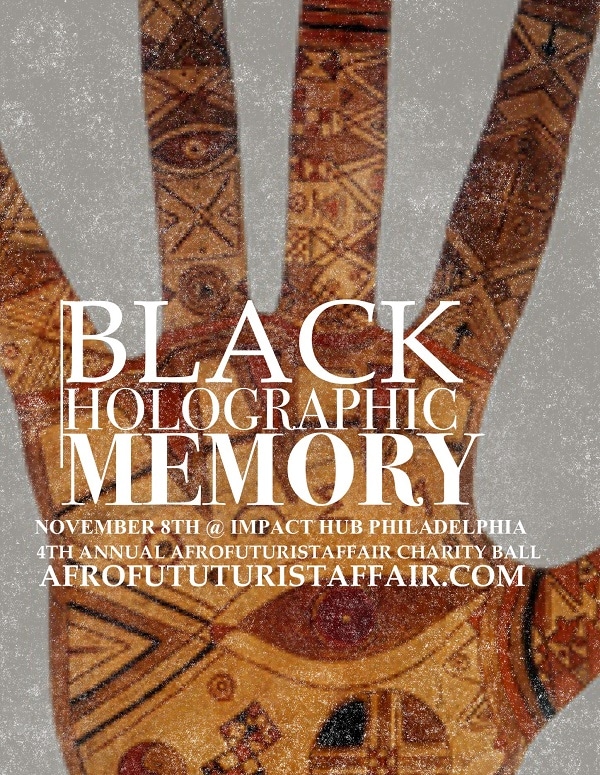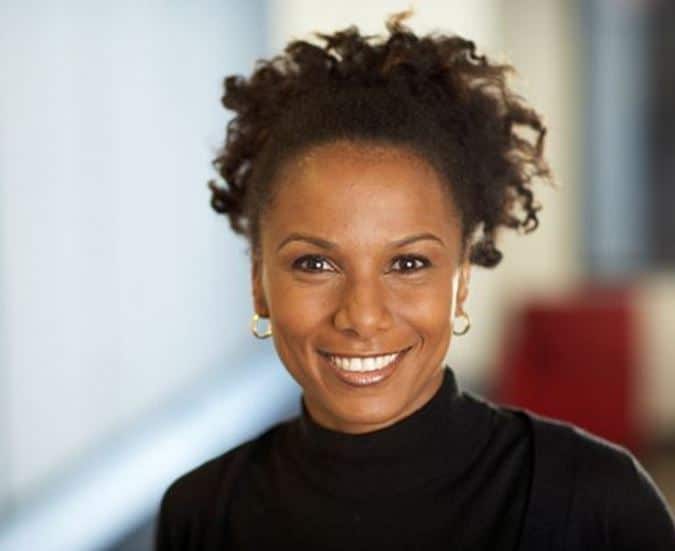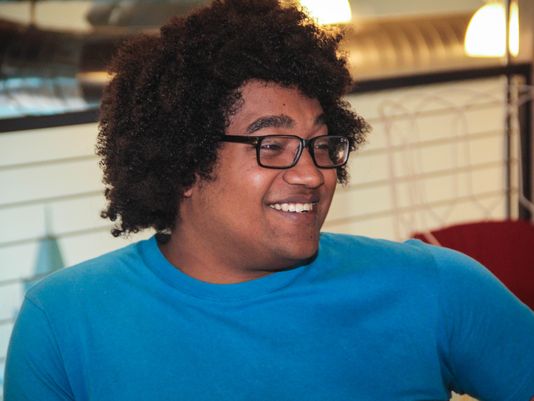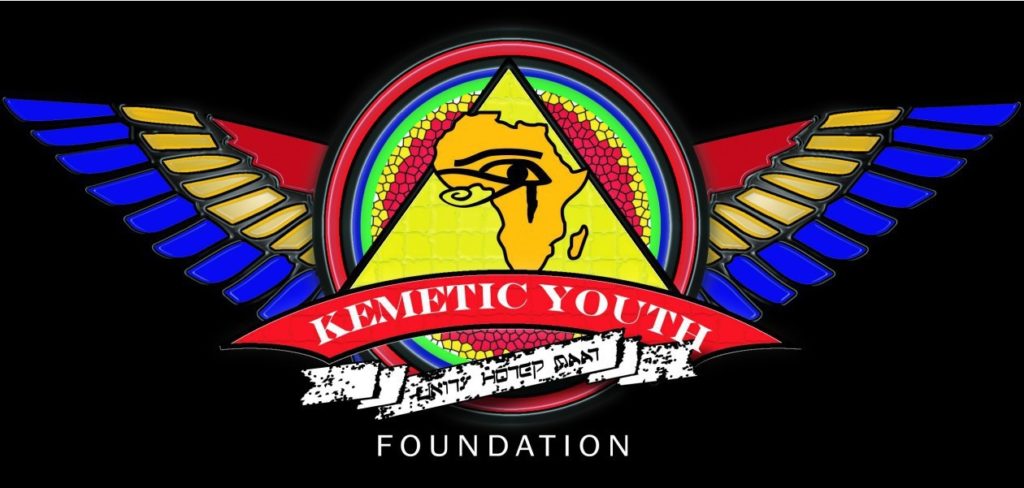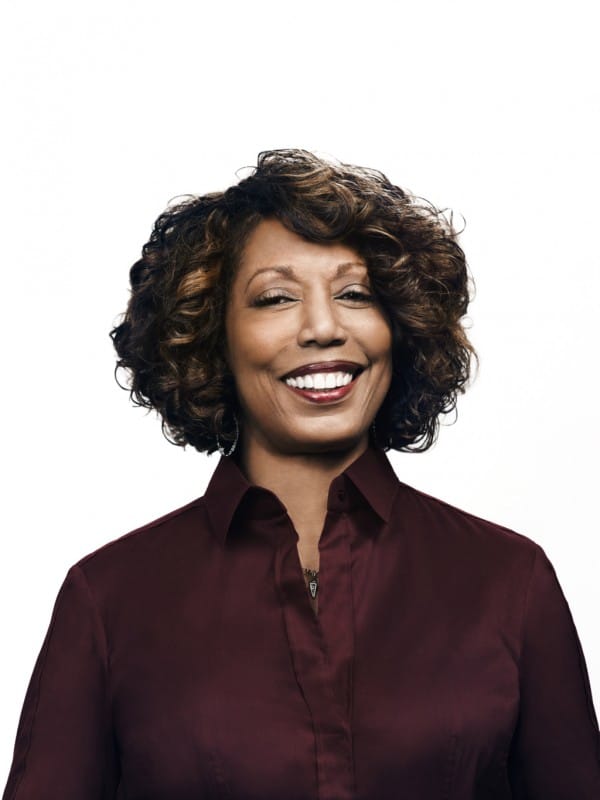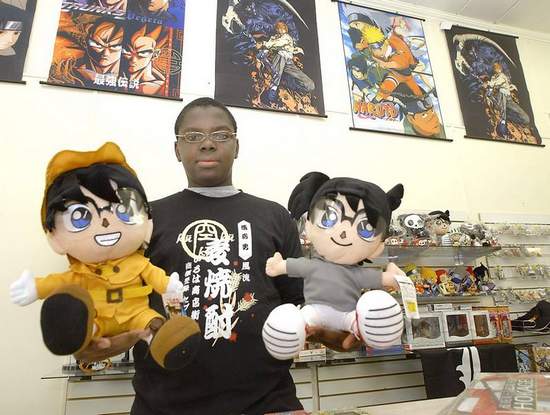One of the beautiful things about Afrofuturistic and Black nerd culture seems to be the fact that you can enter it from any point or perspective. Afrofuturism, whether applied retrospectively to the works of Sun Ra or used as a creative medium in the here and now, tracks what the future looks like across time, from various points and locations. If you apply the lens correctly, it can connect you to the speculative future from the imaginative standpoint of a Black woman writer by the name of Octavia Butler, born in California in 1947, or help you envision the future formed from the liberation philosophies of a political activist by the name of Marcus Garvey, born in Jamaica in 1887. Afrofuturism, in my opinion, functions as an open-source free space, where people can self-identify as Afrofuturists, craft their own modes of practice from some core, general principles, and participate in their own ways – either individually and/or as part of the broader community of Afrofuturists.
For the past four years, I have experienced the multifaceted expression of Afrofuturism through an event that I curate in Philadelphia called The AfroFuturist Affair Charity & Costume Ball. At the annual ball, we celebrate and bring awareness to this culture with a showcase of self-identified Afrofuturistic visual artists, musicians, performers and authors who all use the Black speculative imagination as vehicles for their work. Artists featured at the ball are diverse in their theories, topics and modes of expression, but all of their work embody common Afrofuturistic elements – tapping into our ancestral memory, while envisioning our personal and collective futures as African-descended people.
This year, the annual AfroFuturist Affair Charity & Costume Ball has expanded space-time from one evening to a monthlong celebration of Afrofuturism. In addition to the fourth annual costume ball on Saturday, Nov. 8, we will have events throughout November, including workshops, a dance party, readings, film screenings, art exhibits and a punk rock show, all exploring the theme of Black Holographic Memory, the collective unconscious memory of Black people throughout time and space contained within each individual, passed down through our shared ancestry. It is a conscious activation of ancestral memory through music and art.
The kickoff event will feature bodypainting, pop-up photoshoot, and live music and performance art from experimental group Visibly Inflight, hip-hop group Ganja Goons, soul and folk group Violet Marley, producer and musician Marlo Reynolds, experimental artist Moor Mother Goddess, author James L. Hampton III, performers from Cirque Mannik, poet Joy KMT, DJ and producer Wino Willy, experimental sound project Nyfolt, musician and artist John Wesley Moon, spoken word artist Warren C. Longmire, and hip-hop artist Sindian. This event will take place at Impact Hub in North Philly, which will also host a monthlong exhibition of Afrofuturist artwork, with pieces from Noni Red, Omi Urban Gypsy, Nyfolt, Selam Bekele, John Moon and Dezz Archie. At the Indigenous Futures afterparty on the same night, we will have DJ Haram, DJ PreColumbian, and DJ Nolita Selector, all women and genderqueer media activists and DJs of color who spin experimental, house, trap, bass, and global music.
We will be hosting a film screening event at Impact Hub on Nov. 13, which will feature Afrofuturist, speculative, Black sci-fi, and horror films. The screenings will include Prince of Nowhere by Selam Bekele; A Dangerous Cure by Kevin Jarvis, Last Man Standing by Stan West, NOISEGATE by Donovan Vim Crony , Walk With Me by Art Punch Studio, and other shorts. We will be Skyping in to talk with some of the filmmakers after the screenings.
The monthlong celebration will also feature an experimental space for social practices of Afrofuturism through cultural workshops and speculative fiction readings at A*Space on Nov. 15. There will be experimental workshops, mini-lectures, readings, and a musical performance. Activities will include time travel experiments, fiction after the end of history, a guided journey in order to find the oldest, blackest memory in the DNA museum, featuring Metropolarity Speculative Fiction collective, scholar Rone Shavers, Almah the Alchemist, poet and performer MMGZ, Afrofuturist author and healer DjaDJa Medjay, and music group BHTP. The final event for Black Holographic will be held on Nov. 19 at Dahlak Restaurant, in collaboration with community partner, Rockers!, a monthly DIY event in Philly that showcases Black and female-led punk bands from all over the country.
All proceeds from the Black Holographic Memory events will benefit the Futurist Fund, a grassroots-style community grant dedicated to serving the needs of an underserved or marginalized member of the community with an immediate and demonstrated need, and without other available funds or resources to meet that need. This allows the proceeds from the events to cycle directly back into the communities where the events are held. The grant seeks to connect the philosophies of Afrofuturism to principles of liberation and upliftment of disenfranchised communities. The DIY/grassroots principles of the organization do not require corporate backing. We are proud to receive support for the events from women-owned small businesses and community organizations such as Philadelphia Printworks, Lissa Alicia IMM, Metropolarity, Rockers, and FanBros.com.
The AfroFuturist Affair Charity & Costume Ball – and Afrofuturism in general – engages the Black community as a vehicle through which people can push beyond the confines of the mainstream narratives and stereotypes that have marginalized their interests, experiences, and their very existences. In the form of art, critical analysis, music, fashion and literature, Afrofuturists correct the records of our histories and interrogate the present structures and institutions of modern-day society, all while building future worlds where Black people have agency and a significant presence.
For more info and tickets to Black Holographic Memory, please visit www.blackholographicmemory.eventbrite.com
If you can’t attend the ball but still want to support, please donate to our IndieGoGo campaign at https://www.indiegogo.com/projects/black-holographic-memory/x/1024255 !

